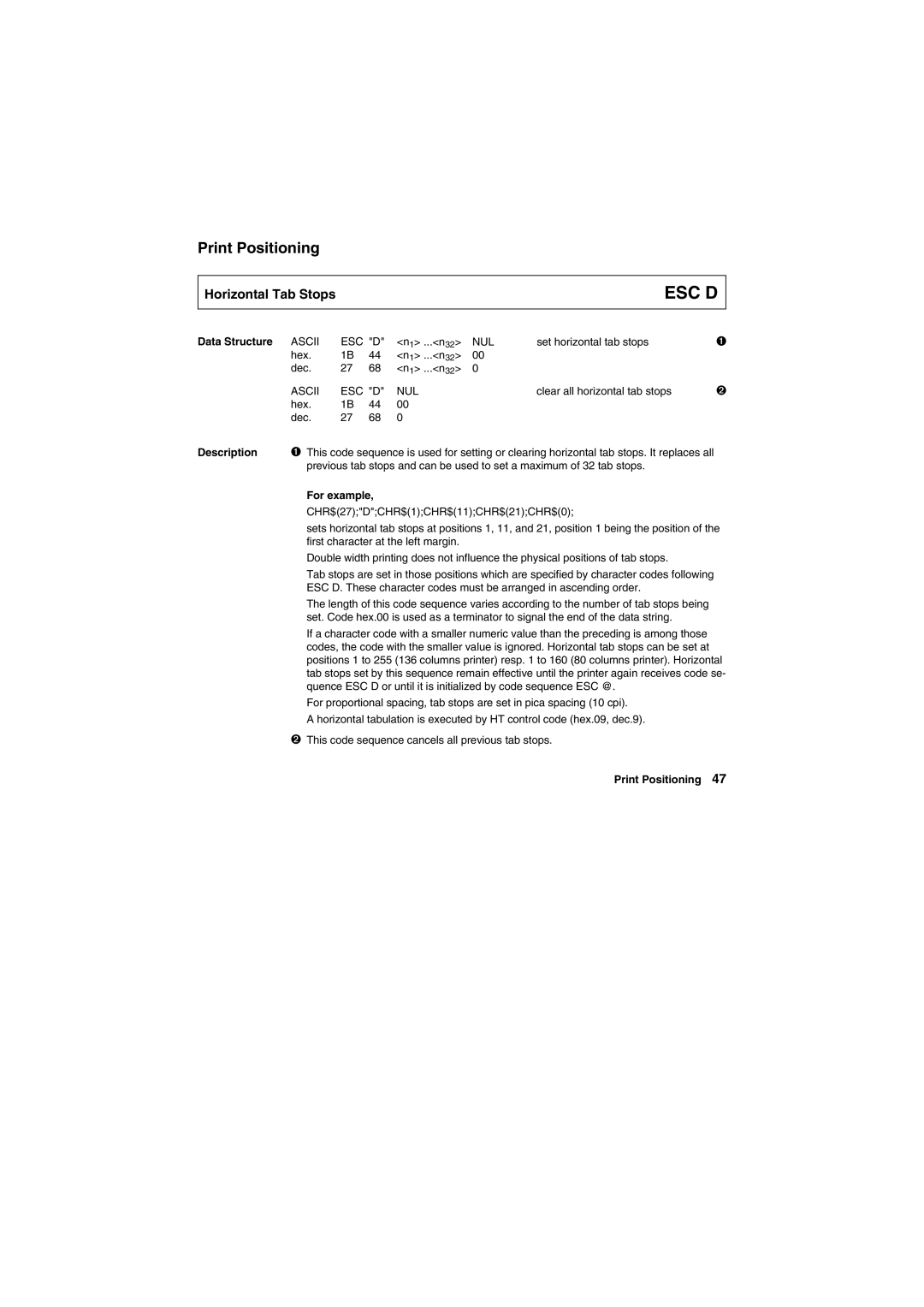Print Positioning
Horizontal Tab Stops |
|
|
| ESC D | |
|
|
|
|
| |
Data Structure ASCII | ESC "D" | <n1> ...<n32> NUL | set horizontal tab stops | ➊ | |
hex. | 1B | 44 | <n1> ...<n32> 00 |
|
|
dec. | 27 | 68 | <n1> ...<n32> 0 |
|
|
ASCII | ESC "D" | NUL | clear all horizontal tab stops | ➋ | |
hex. | 1B | 44 | 00 |
|
|
dec. | 27 | 68 | 0 |
|
|
Description ➊ This code sequence is used for setting or clearing horizontal tab stops. It replaces all previous tab stops and can be used to set a maximum of 32 tab stops.
For example,
CHR$(27);"D";CHR$(1);CHR$(11);CHR$(21);CHR$(0);
sets horizontal tab stops at positions 1, 11, and 21, position 1 being the position of the first character at the left margin.
Double width printing does not influence the physical positions of tab stops.
Tab stops are set in those positions which are specified by character codes following ESC D. These character codes must be arranged in ascending order.
The length of this code sequence varies according to the number of tab stops being set. Code hex.00 is used as a terminator to signal the end of the data string.
If a character code with a smaller numeric value than the preceding is among those codes, the code with the smaller value is ignored. Horizontal tab stops can be set at positions 1 to 255 (136 columns printer) resp. 1 to 160 (80 columns printer). Horizontal tab stops set by this sequence remain effective until the printer again receives code se- quence ESC D or until it is initialized by code sequence ESC @.
For proportional spacing, tab stops are set in pica spacing (10 cpi).
A horizontal tabulation is executed by HT control code (hex.09, dec.9).
➋This code sequence cancels all previous tab stops.
